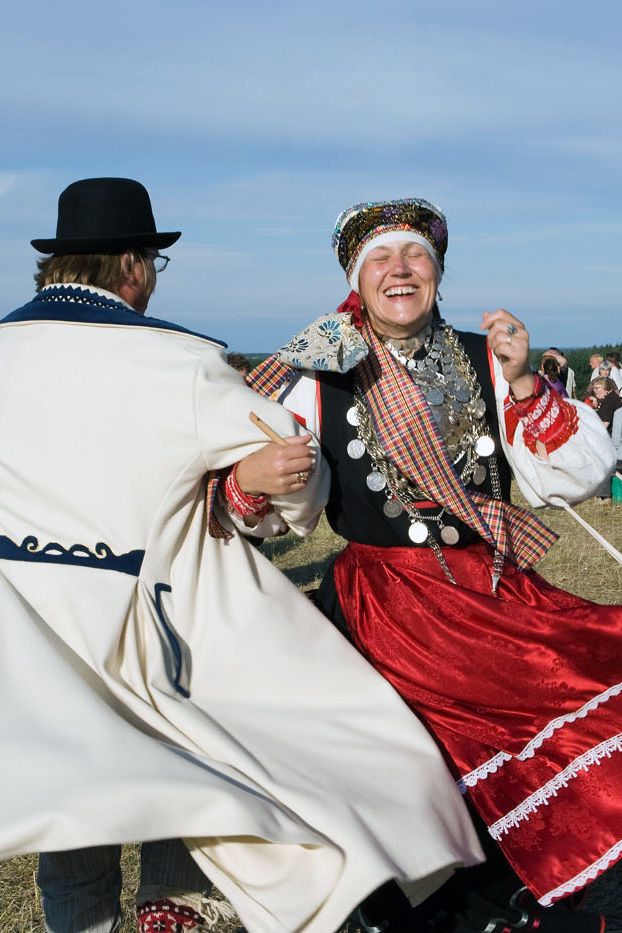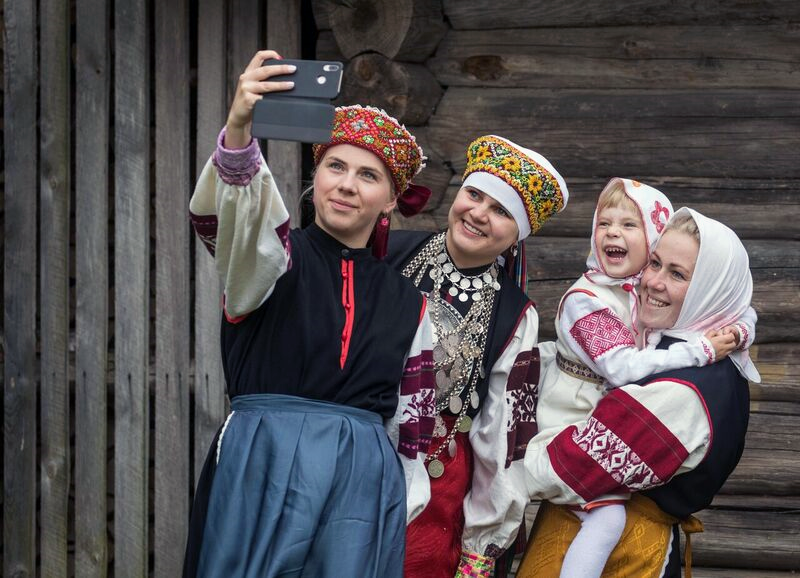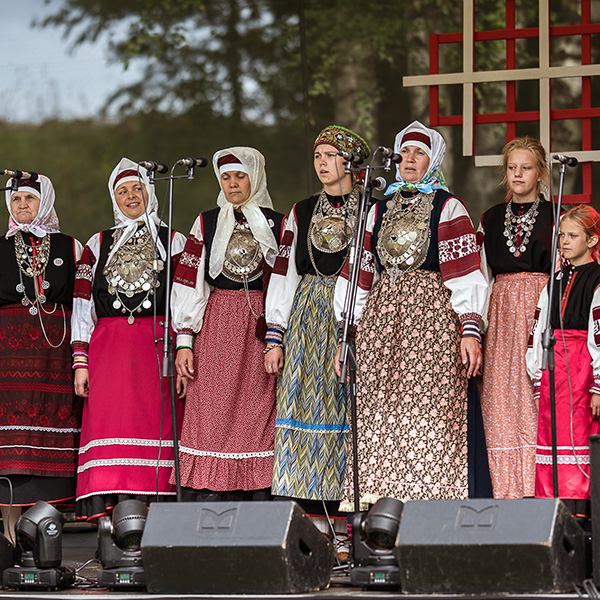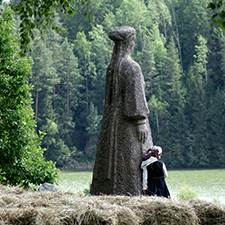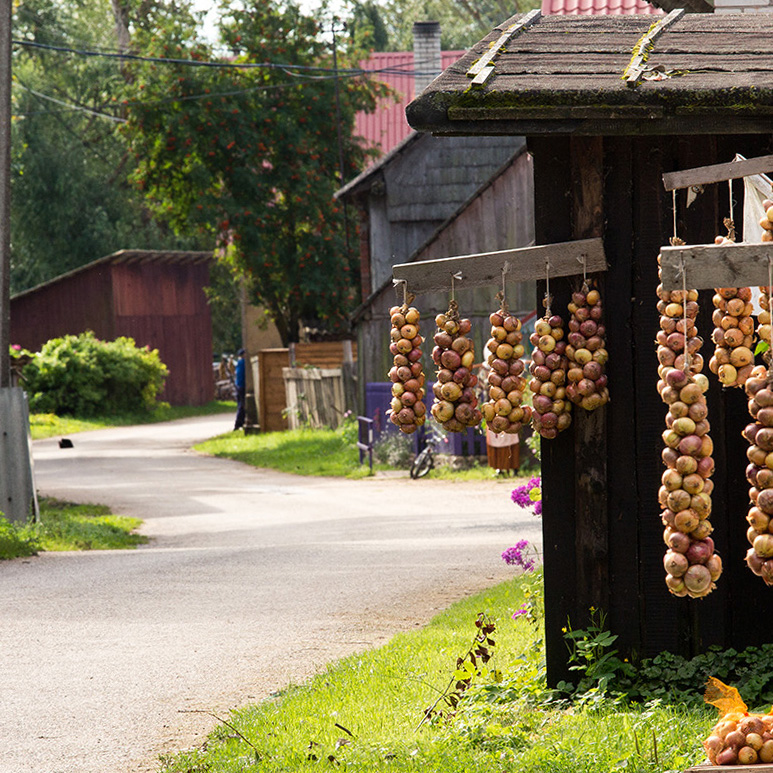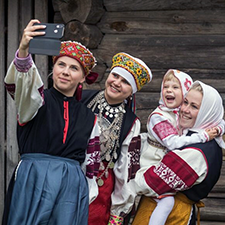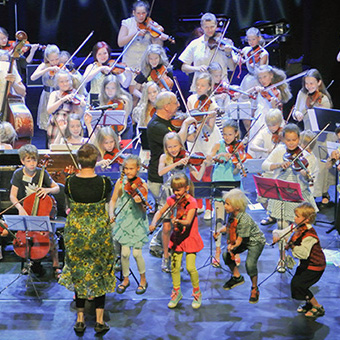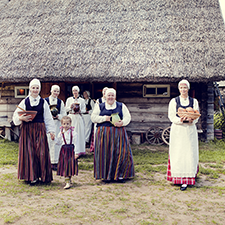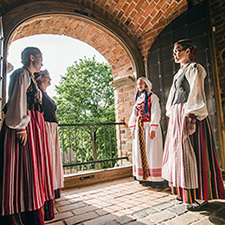Estonian Singing Heritage
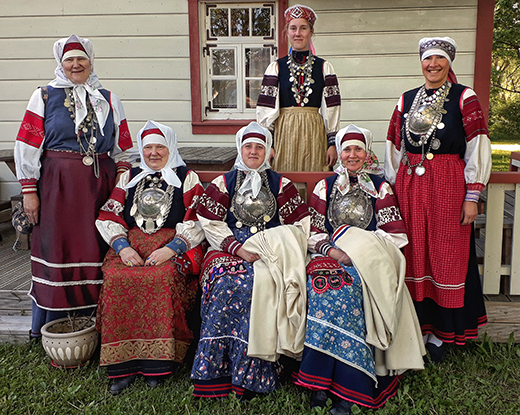
Seto Leelo
Seto polyphonic singing tradition, is practised in Southeastern Estonia, and can be found on the UNESCO list of intangible cultural heritage. It is believed to be about two thousand years old, and it is central to the cultural identity of Seto people. In general, several people are needed to perform a leelo: a lead singer, a choir, and an accompanying solo voice singer. Typically, the lead singer sings the verse and then the choir repeats the verse, starting from the last syllables together with the lead singer. In addition to old songs, improvising skills and creating new songs are appreciated within the singing community.
Setos still sing their songs today and pass the tradition on to the next generations. Nowadays, one can hear Seto leelo on national holidays and at important cultural events.
Seto Leelo Day
Seto Leelo Day is celebrated every three years and all seto choirs gather there to sing. The video was filmed on Seto Leelo day in 2010. The song is sung by joint chorus, and this perhaps one of the most well-known songs praising Seto leelo and the way of singing.
Folk music
Folk music in Estonialives strong creative time. Many musicians use traditional elements with their own ideas and that way they create something unique.
On the video TRAD.ATTACK! plays in Viljandi Folk festivals 2020.
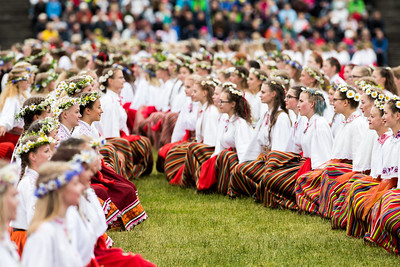
Estonian Song and Dance Festivals
Baltic song and dance celebrations is an inspiring and unique phenomenon in itself, as it manifests the peoples need to express and renew their cultural identity, the power of civil society, and also the meaning of democracy and freedom of expression. In 1869, the first Song Celebration in the Baltics was held in Estonia (Tartu) and some years later in Latvia (Riga). From that on, the celebrations have attracted tens of thousands of singers and dancers every fourth (Lithuania) or fifth (Estonia, Latvia) year to celebrate their own culture and identity.
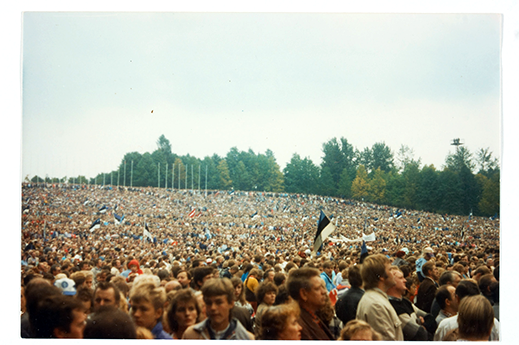
Singing Revolution
The most impressive demonstration of the power of the singing were the events that led to the restoration of independence of the Baltic states of Estonia, Latvia, and Lithuania from the Soviet Union at the turn of the 1980s and 1990s. The term „Singing Revolution“ is derived from the spontaneous mass evening singing demonstrations at the Tallinn Song Festival Grounds. The movement was largely based on the Song and Dance Celebrations, which had strengthened the sense of national identity and need for sovereignty. The concept of “Singing Revolution” is today known in the whole world.
Festivals and Events
![]() Music festivals in Estonia
Music festivals in Estonia
Seto Leelo
Seto Kingdom Day 1st Sat of August
XVI Seto Leelo Day 1.-2. July 2022. Leelo Day of 2022 is incorporated into the program of Seto Folk
Folk Music
Seto Folk 1.-2. July 2022. Leelo Day of 2022 is incorporated into the program of Seto Folk
Uma Pido is a Võro-language song and folk festival. Next festival will be held in Intsikurmu, Põlva on the 1st of June 2024
Estonian Traditional Music Centre
The ground floor is home to two concert halls. There is also a shop, which sells a wide range of traditional music, books, and instruments. Here the August Pulst music school holds classes, and the traditional music archives operate.
Festivals, conserts and other performanses are organized here around a year.
Võru folklore festival is the oldest and biggest annual folkfestival in Estonia.
Song and Dance Festivals
IV Dance Festival of South-East Estonia,
29 May, 2022
Tartu Song Festival 22th of June 2024 – same year when Tartu will be the European capital of culture

